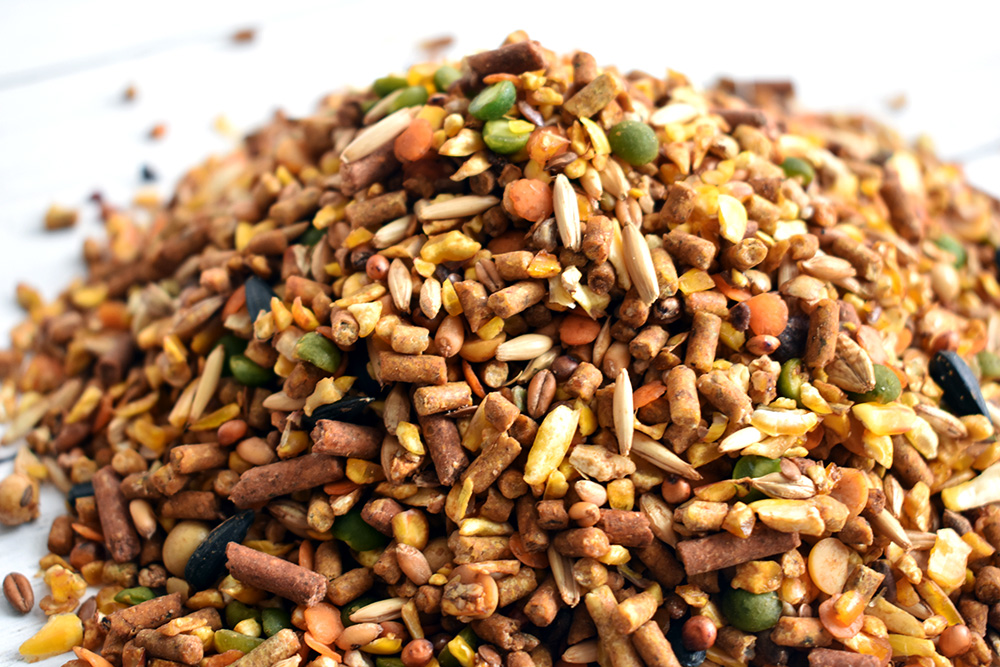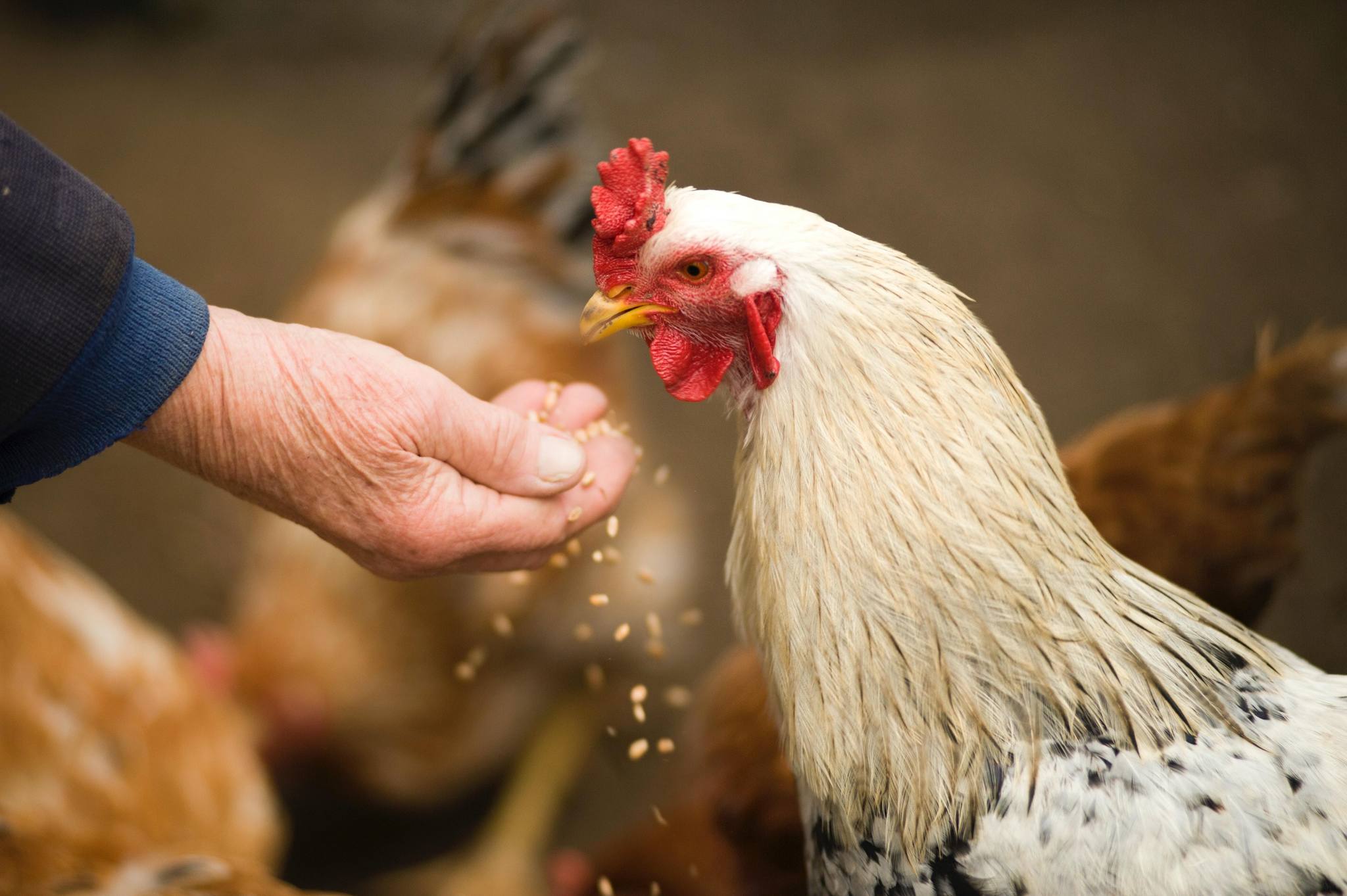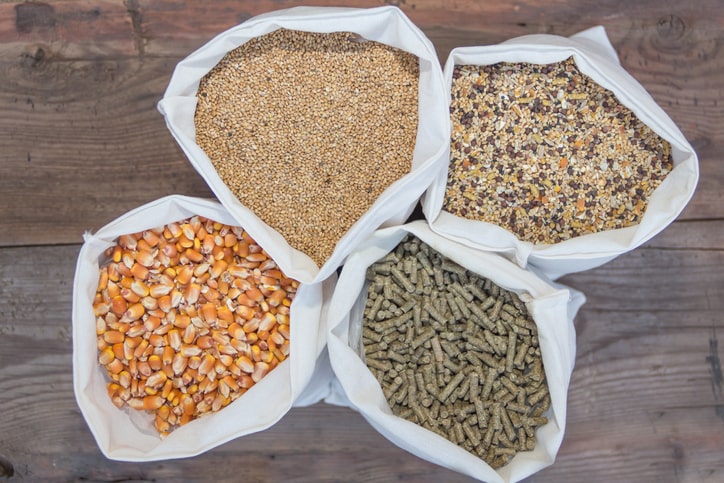Crude protein is one of the most critical components when it comes to poultry nutrition. Many poultry enthusiasts often ponder, what is crude protein in chicken feed and why it’s so vital. Understanding crude protein can make a tremendous difference in the health and productivity of your chickens.

The Big Deal About Crude Protein
Crude protein is essentially the total amount of protein present in the feed. It includes both the digestible and indigestible proteins. The inclusion of crude protein in chicken feed ensures that chickens get the building blocks they need for tremendous growth, egg production, and overall health.

Why is Crude Protein So Important?
Proteins are made up of amino acids, which are essential for various bodily functions. Chickens need these proteins for muscle development, feather growth, and laying eggs. Hence, a balanced level of crude protein in their feed is crucial for their overall performance and well-being.
Understanding Amino Acids
Amino acids are the building blocks of proteins. Chickens require a balanced array of essential amino acids that they cannot synthesize on their own and must obtain from their diet. Crude protein in chicken feed provides a mix of these amino acids, ensuring that the birds get what they need.
Protein Quality Matters
It is not just the quantity but also the quality of the protein that matters. High-quality protein sources in chicken feed ensure better digestibility and absorption of the nutrients, leading to healthier and productive chickens.

Types of Protein Sources
The most common sources of protein in chicken feed include soybean meal, fish meal, and meat by-products. Each of these has its own set of benefits and brings variety to the chickens’ diet.
Plant-Based Proteins
Plant-based proteins like soybean meal are rich in essential amino acids and are highly digestible. They are a staple in many commercial chicken feeds.
Animal-Based Proteins
Animal-based proteins such as fish meal are excellent sources of high-quality protein and are also rich in other essential nutrients like omega-3 fatty acids.

How Much Crude Protein Do Chickens Need?
The amount of crude protein required varies depending on the age, breed, and production stage of the chickens. On average, starter feeds contain around 20% crude protein, grower feeds have about 16-18%, and layers’ feed includes about 15-17% crude protein.
Starter Feed
Starter feed is designed for chicks up to 6 weeks old. It typically contains around 20-24% crude protein to support rapid growth and development.
Grower Feed
Grower feed is for chickens between 6 to 20 weeks old. This feed contains around 16-18% crude protein, suitable for the slower growth phase.
Layer Feed
Layer feed caters to hens that are laying eggs. It has about 15-17% crude protein, which is adequate for egg production while maintaining the hen’s health.
The Role of Crude Protein in Egg Production
Protein plays a vital role in egg production. Hens require adequate protein to produce eggs consistently and maintain their health. An imbalance in crude protein levels can affect egg size, quality, and production rate.
Monitoring Crude Protein Intake
It’s essential to monitor the crude protein intake of your chickens. Overfeeding or underfeeding protein can lead to various health issues. Therefore, it is advisable to provide a balanced diet according to the specific needs of the poultry.
Signs of Protein Deficiency
Signs of protein deficiency in chickens include poor growth, feather loss, reduced egg production, and overall lethargy. Ensuring a proper balance of crude protein in their diet can prevent these issues.
Technological Advances in Chicken Feed
With the advancement of technology, the poultry industry has seen tremendous improvements in chicken feed formulations. Modern feed now contains optimized levels of crude protein, tailored to meet the specific needs of different breeds and production stages.
Feed Additives
Feed additives are used to enhance the nutritional value of chicken feed. These include essential vitamins, minerals, and amino acids that complement the crude protein content.
Quality Control
Quality control is crucial in the production of chicken feed. Ensuring that the feed contains the correct levels of crude protein and is free from contaminants is vital for the health and productivity of the chickens.
Approved Ingredients in Chicken Feed
Approved ingredients in chicken feed include grains, protein meals, vitamins, and minerals. Ensuring the right combination of these ingredients is crucial for providing balanced nutrition to the chickens.
Grains
Grains such as corn, wheat, and barley provide the necessary energy and carbohydrates needed in the diet along with protein.
Protein Meals
Protein meals like soybean meal and fish meal are integral for supplying the crude protein needed by chickens.
Recipes and Homemade Chicken Feed
Some poultry enthusiasts prefer to make their own chicken feed at home. This allows for greater control over the ingredients and their quality. However, it is essential to ensure that homemade feed contains balanced levels of crude protein and other nutrients.
DIY Feed Recipes
DIY feed recipes can include a mix of grains, protein meals, and additives to meet the nutritional needs of chickens. It is advisable to follow tried-and-tested recipes to avoid any nutritional imbalances.
Benefits of Homemade Feed
Homemade feed can be more cost-effective and allow for customization based on the specific needs of your flock. However, it is crucial to ensure the feed meets the required crude protein levels to maintain the health and productivity of the chickens.
Delighted Chickens with Balanced Diets
Providing a balanced diet with adequate levels of crude protein ensures that your chickens remain healthy and productive. A balanced diet contributes to better growth, egg production, and overall well-being of the poultry.
Monitoring Feed Quality
Regularly monitoring the quality of feed and ensuring it meets the nutritional needs of your chickens is essential for maintaining their health.
Adjusting Diets
Adjusting the diet based on the age, breed, and production stage of the chickens ensures they receive the right amount of crude protein and other nutrients.
The Future of Chicken Feed
The future of chicken feed looks promising with continuous advancements in feed technology. The aim is to provide more efficient and nutrient-dense feeds to meet the ever-increasing demand for poultry products.
Research and Development
Ongoing research and development in the field of poultry nutrition aim to find more efficient ways to deliver the necessary nutrients, including crude protein, to chickens.
Terrific Tips for Poultry Enthusiasts
As a poultry enthusiast, understanding the importance of crude protein in chicken feed can help you make informed decisions about your flock’s diet. Here are some terrific tips to ensure your poultry gets the best nutrition.
Regular Checkups
Regularly check the nutrient composition of the feed you provide to your chickens. Ensure it meets the required crude protein levels for their age and production stage.
Quality Feed
Always opt for high-quality feed from reputable suppliers. Check for approved ingredients and ensure the feed formulation is balanced and suitable for your chickens.
FAQ
What is crude protein in chicken feed?
Crude protein is the total amount of protein present in the chicken feed, including both digestible and indigestible proteins. It is essential for the growth, development, and overall health of chickens.
How much crude protein do chickens need?
The required amount of crude protein depends on the age, breed, and production stage of the chickens. Starter feed typically contains around 20%, grower feed 16-18%, and layer feed 15-17% crude protein.
What are the signs of protein deficiency in chickens?
Signs of protein deficiency in chickens include poor growth, feather loss, reduced egg production, and lethargy. Providing a balanced diet with adequate levels of crude protein can prevent these issues.
Conclusion
Understanding what is crude protein in chicken feed is crucial for any poultry enthusiast. It plays a vital role in the overall health and productivity of chickens. By providing a balanced diet with the right levels of crude protein, you can ensure your flock remains healthy, productive, and delighted. For more in-depth information, you can also refer to this regularly updated resource.
As an Amazon Associate, I earn from qualifying purchases.
As an Amazon Associate, I earn from qualifying purchases.








